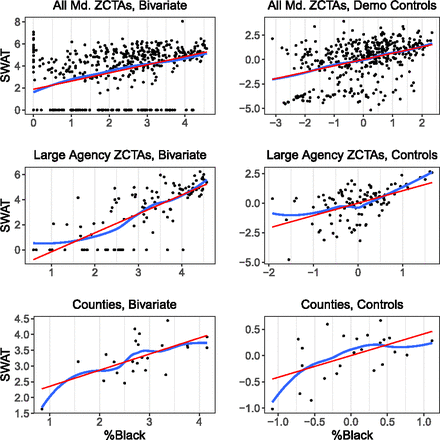A study published by Jonathan Mummolo, assistant professor of politics and public affairs at Princeton University, reveals that law enforcement is hiding important facts about police militarization.
The study titled “Militarization fails to enhance police safety or reduce crime but may harm police reputation” reveals a very important fact.
“Militarized police units do not appear to provide the safety benefits that many police administrators claim.”
Mummolo studied data from 9,000 police departments many of which refused to reveal the “presence of militarized police units or their activities.”
The study shows that militarized police units are more often deployed in communities of color. “I show that militarized police units are more often deployed in communities with high concentrations of African Americans,” Mummulo said.
Mummolo’s study confirmed what many of us already knew, the “results are consistent with the descriptive claim that Black residents face a pronounced risk of experiencing militarized policing.” The study also warned that “repeated exposure to police in militarized gear could help to cement negative views of law enforcement in the mass public.”
Police Militarization Erodes Public Opinion
Mummolo warns, “the normalization of militarized policing in the United States has raised concerns that a new, heavy-handed policing strategy is being used in similar ways and is eroding public opinion toward law enforcement.”
So what can we learn from this study?
Police have used 9/11 and the War on Drugs as an excuse to militarize police and target minorities.
A new national study from the School of Public Affairs and Administration at Rutgers University-Newark reveals that a disproportionate percentage of black men are killed by police each year.
“They found that African Americans are killed by police more than twice as often as the general population.”
If one thing is certain it is this, law enforcement does not like to be criticized. It won’t be long before they spin these studies into a fairy tale.
This article was originally published on MassPrivatel.
- Company Turns Any Camera Into an Automatic License Plate Reader - September 10, 2021
- Federal Surveillance State Empowers TSA to Control Entire U.S. Transit System - August 26, 2021
- Biden Gives “Five Eyes” Surveillance Consortium Access to Everyone’s Social Media - August 3, 2021

